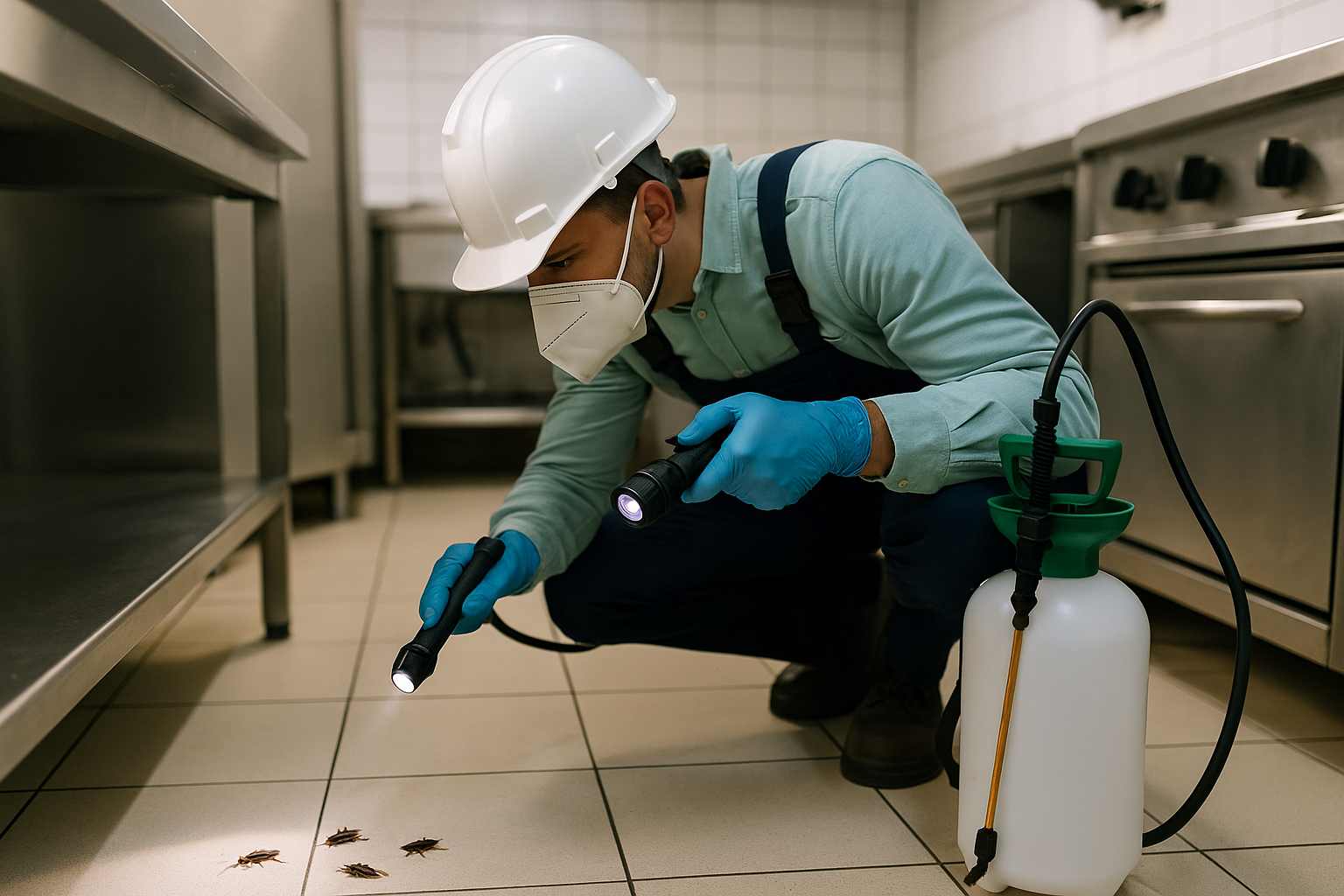Health inspectors take sanitation and hygiene very seriously when they assess a business. Restaurant owners, property managers, and facility operators know that even a minor violation could cause fines, customer complaints, or temporary closures. Effective prevention measures protect both the reputation of a business and the well-being of employees and customers.
Thus, commercial pest control becomes an essential step in protecting operations and ensuring a property remains compliant with required health standards. Taking these precautions leads to smoother inspections and fewer disruptions to daily business activities. This proactive approach also builds confidence among staff and patrons that their safety is a top priority. Let’s explore its benefits in maintaining health code compliance for your business.
Health Codes and Workplace Safety
Health codes are designed to keep workplaces safe for people who visit and work inside them. These regulations focus on areas such as clean surfaces, proper food storage, sanitation standards, and safe waste disposal. The presence of pests compromises each of these requirements because insects and rodents spread bacteria.
Their droppings and nesting materials contaminate surfaces quickly and make areas unsafe. When contamination happens, it can spread rapidly if not addressed immediately. Keeping the environment pest-free helps maintain high cleanliness standards necessary to meet these rules and protect human health effectively.
Prevents Costly Health Violations
Health inspectors look for signs of pest presence during scheduled evaluations. Any indication of rodent droppings, trails of ants, or insect infestation can immediately result in a violation. A single citation creates costs, damages reputation, and impacts customer confidence. Customers expect businesses to operate in clean and secure environments every time they walk in.
Ignoring pest control needs could lead to repeated inspections and higher penalties. Taking early action reduces the risk of a pest-related violation and shows inspectors that management takes compliance seriously.
Protects Food Handling Areas
Food and beverage facilities operate under stricter enforcement than many other businesses because contamination in service areas directly impacts people. Kitchens, storage areas, and serving stations are magnets for pests if not protected properly. Flies, cockroaches, and rodents gravitate toward leftovers, garbage bins, and moisture.
Once inside, they spread pathogens that compromise food quality. These harmful organisms can cause cross-contamination, leading to illnesses and food recalls. Regular pest control safeguards these sensitive environments, which helps businesses maintain strong food safety records and customer trust.
Safeguards Brand Reputation
Word of mouth travels fast, especially when customers find evidence of pests inside a business. A single photo on social media can undo years of work in building credibility. The presence of rodents or cockroaches suggests negligence and creates an impression that hygiene is not a priority.
Consumers then lose trust, and competitors benefit from the negative publicity. Maintaining a pest-free environment shows commitment to quality and professionalism. This reassurance helps attract new customers and keeps loyal patrons returning confidently.
Reduces Liability Risks
Business owners face liability when unsafe conditions cause illnesses or accidents. Pests contribute directly to these conditions because droppings and urine introduce contaminants linked to diseases. Employees exposed to such conditions may even file health-related claims. Customers could also take legal action if they get sick after visiting or eating at a facility.
Legal consequences can be expensive and damage the long-term viability of the business. Maintaining effective pest control reduces these exposure risks and protects owners from costly claims and lawsuits. Preventive pest management is a wise investment that safeguards health while preserving the financial stability of the business.
Creates a Consistent Maintenance Routine
Passing inspection requires more than just quick solutions when pests appear. Health officials look for ongoing proof that a business maintains cleanliness at all times. Waiting for infestations to show up before responding is never enough. A structured plan with scheduled visits demonstrates a proactive approach that inspectors respect.
Regular maintenance helps detect potential pest issues early before they become severe. This foresight creates operational stability and reduces emergency treatment costs, offering peace of mind to management. Early identification means problems can be resolved quickly, preventing costly disruptions and preserving business continuity.
Long-Term Business Benefits
Beyond compliance, professional pest prevention programs produce lasting financial advantages. Preventing infestations removes the need for costly emergency treatments, reduces the chance of temporary closures, and protects inventory from spoilage. Employees work more comfortably in environments free from pests, which improves morale and productivity.
Customers return to businesses they trust to provide safe and clean spaces. These benefits combine to increase profitability and growth opportunities. Investing in ongoing pest prevention demonstrates a commitment to sustainability and quality service. This commitment also signals to clients and partners that the business values long-term responsibility and environmental stewardship.
Health authorities expect businesses to uphold rigorous standards, and pest-free environments form a critical part of those requirements. Properties that ignore this step risk citations, closures, and loss of trust. A structured approach to commercial pest control safeguards every aspect of operations while keeping businesses fully compliant with health codes. Taking these measures in the present protects the future of any commercial enterprise and supports overall community health.






